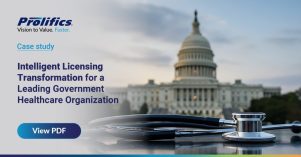Generative AI in healthcare represents a revolutionary leap in addressing some of the most pressing challenges in the medical field. In a world where healthcare professionals grapple with time-consuming tasks, data overload, and complex decision-making, GenAI emerges as a powerful ally. It offers innovative solutions, making healthcare more efficient, accurate, and patient-focused. Emerging technologies such as AI for medical diagnosis and personalized medicine AI treatment are setting the foundation for the future of AI in healthcare, where technology supports providers in saving time and improving patient outcomes.
Dr. Emily’s Story
Once upon a time in a fast-paced urban hospital, Dr. Emily, a dedicated physician, found herself overwhelmed by a mountain of medical records. She and her team had countless patients to see, each with unique medical histories. Keeping track was becoming increasingly challenging.
The hospital had recently adopted a cutting-edge GenAI solution to assist her and the healthcare professionals in various tasks — from automating clinical documentation to supporting AI clinical decision support systems that improve care quality.
Challenges and Prolifics Generative AI Solutions
Challenge 1: Managing Lengthy Medical Reports
Healthcare professionals often struggle to efficiently analyze extensive medical reports, which can be time-consuming and overwhelming.
Generative AI Solution Assists with:
- Medical Reports Summarization: GenAI analyzes lengthy reports and extracts key information, such as patient history, diagnosis, treatment plans, and prognosis, to generate concise and easy-to-read summaries. This not only saves time but also improves diagnostic accuracy with AI when reviewing patient records.
Challenge 2: Identifying Drug Interactions
Ensuring patient safety by identifying potential drug interactions is a complex task that requires thorough analysis of a patient’s medication list and history.
Generative AI Solution Assists with:
- Drug Interaction Summary: GenAI identifies potential drug interactions by analyzing patient medication lists. It summarizes possible interactions, contraindications, and recommendations for alternative medications or dosage adjustments. This aligns with advances in AI drug discovery explained and the growing field of generative AI drug discovery.
Challenge 3: Accurate Medical Coding
Accurate medical coding is essential for billing and insurance purposes but is often error-prone when done manually.
Generative AI Solution Assists with:
- Medical Coding Automation: GenAI automates coding tasks by analyzing clinical notes and generating appropriate codes (e.g., ICD-10 or CPT codes). This reduces errors, ensures compliance, and frees up staff to focus on care.
Challenge 4: Navigating Vast Research Literature
Staying updated with the latest research in healthcare can be challenging due to the overwhelming amount of literature.
Generative AI Solution Assists with:
- Research Literature Mining: GenAI helps professionals extract key information quickly. It summarizes research papers, highlights important findings, and generates hypotheses. This makes knowledge discovery easier and supports personalized treatment plans with AI, enabling researchers to adapt the latest insights into clinical practice.
Challenge 5: Analyzing Clinical Data
Processing and analyzing large clinical data sets is time-consuming and requires expertise.
Generative AI Solution Assists with:
- Clinical Data Analysis: GenAI identifies patterns, trends, and insights to predict outcomes and optimize treatments. By integrating personalized medicine AI treatment with AI clinical decision support, it empowers providers to deliver care tailored to each patient.
Challenge 6: Implementation Strategy
Implementing Generative AI in healthcare enhances efficiency, accuracy, and decision-making. However, it must be approached with focus on privacy, compliance, and ethics.
Prolifics Assists with:
- Data Privacy and Compliance: Ensuring patient data security and adherence to HIPAA.
- Model Optimization: Tailoring AI models for healthcare tasks.
- Validation and Quality Assurance: Confirming AI results align with standards.
- Continuous Learning: Ongoing collaboration with experts to unlock the full value of GenAI.
Here, Prolifics also emphasizes ethical challenges AI in healthcare. From ethical considerations of AI in healthcare to addressing bias, transparency, and trust, these safeguards ensure AI adoption remains responsible and patient-centered.
The Human-AI Partnership
GenAI is not just a tool; it’s a transformational force shaping the future of AI in healthcare. By leveraging GenAI and Prolifics capabilities, professionals are streamlining workflows, advancing patient care, and exploring benefits of medical chatbots for patients who need quick answers. This partnership between human expertise and AI strengthens trust, empathy, and innovation.
Conclusion
The use of Generative AI in healthcare is reshaping the way doctors, researchers, and patients interact with medical systems. From improving diagnostic accuracy with AI to supporting AI drug discovery explained, this technology drives safer, faster, and more precise care.
As healthcare organizations navigate growth, regulation, and innovation, Prolifics provides trusted guidance to maximize AI’s potential.
Ready to transform your healthcare practice with Generative AI? Contact Prolifics Experts today to turn innovation into measurable patient success.




